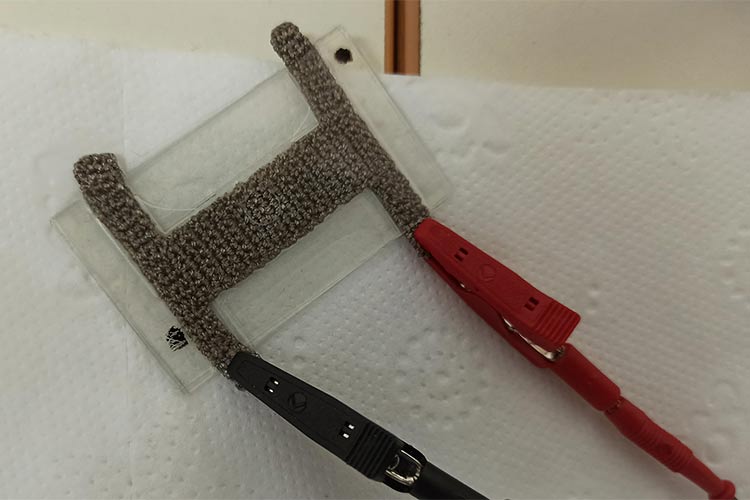Antennas woven into the textile of a driver’s shirt can detect alcohol in sweat, and embroidered electrodes the temperature of a baby’s skin. These are just some of the projects that an international team of experts is working on in Novi Sad.
At the Faculty of Technical Sciences in Novi Sad lies the Centre for Textile Electronics, unique in this part of Europe. Here, a team for nano- and flexible electronics is researching unconventional, textile and edible electronics.
“We are currently working on a textile structure that could potentially enable the examination of human sweat and the detection of certain substances such as blood alcohol and increased stress levels”, said Dr Mitar Simić, an expert on the project, according to RTS.
The STRENTEX project includes textile electronics.
“It is a very topical and popular field, it reduces pollution and enables the creation of flexible structures on clothing and other worn items”, said Dr Milan Radovanović, a senior researcher on the project.
Eight researchers have been hired from all over the world. After studying in Pakistan and the United States, Hima Zafar decided to research her doctoral thesis in Serbia on the use of textile electronics in opiate detection.

“The idea is that a girl can protect herself from potential rape. Using a sensor on a bracelet or a thimble, she can check whether her drink contains drugs or not. The sensor reads the composition of the liquid in the glass and displays a list of substances in our mobile application. That way, a girl can decide whether to drink it or not”, says Zafar.
The production of such materials is enabled by a special embroiding machine that adds silver conductive threads, with which the sensors transmit signals.
So far, the team has developed coils with a core of nettle or spinach, resistors made of powdered sugar, sensors for measuring PH values in the mouth, capacitors made of prunes and apricots and electrodes made of edible gold, and for the first time in the world, sensors for measuring the force of a bite made of fondant and jelly sweets.
In future, the wider application of this type of electronics is expected in all scientific fields.